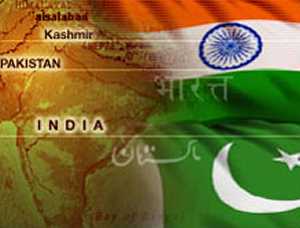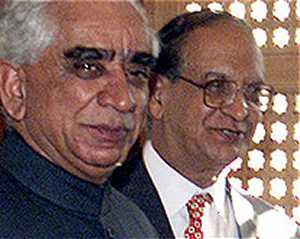 |
ISLAMABAD,
Pakistan -- Pakistani President General Pervez Musharraf is on his way
to Nepal for a summit of South Asian leaders, traveling via a brief stopover
in Beijing, China.
His visit comes as diplomatic efforts intensify to persuade the leaders of India and Pakistan to meet face-to-face on the sidelines of the Kathmandu, Nepal, meeting as a way of calming tensions between the two nuclear rivals. Musharraf and Indian Prime Minister Atal Behari Vajpayee are both due in the Nepalese capital, Kathmandu, Friday for the South Asian Association for Regional Cooperation (SAARC) summit. |

